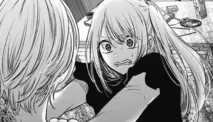Diksia.com - Are you dreaming of writing a novel but don’t know where to start? Do you have a great concept but struggle to turn it into a compelling story? Or do you have so many ideas that you can’t decide which one to pursue?
If you answered yes to any of these questions, then this article is for you. In this article, I will share with you some tips and tricks on how to find and develop a novel idea that will captivate your readers and make you proud of your work.
What is a novel idea?
A novel idea is the core concept of your story. It is the answer to the question: what is your novel about?
A novel idea should be original, intriguing, and relevant to your target audience. It should also be something that you are passionate about and interested in exploring.
A novel idea is not the same as a plot, a theme, or a genre. A plot is the sequence of events that happen in your story. A theme is the central message or lesson that your story conveys.
A genre is the category or style of your story, such as romance, fantasy, or thriller. A novel idea can include elements of plot, theme, and genre, but it is more than that. It is the essence of your story.
How to find a novel idea?
There are many ways to find a novel idea. You can get inspired by your own life experiences, by other books or media, by current events or trends, by random prompts or exercises, or by brainstorming and freewriting.
Here are some examples of how to find a novel idea using these methods:
Life experiences
Think about the most memorable or impactful moments in your life. What did you learn from them? How did they change you? How can you use them as a basis for a fictional story?
For example, maybe you had a near-death experience that made you rethink your priorities. Or maybe you met someone who changed your perspective on life.
Or maybe you traveled to a place that fascinated you with its culture and history.
Other books or media
Read widely and watch diverse shows and movies. Pay attention to what stories capture your attention and why.
What themes or topics do they explore? What emotions do they evoke in you? How can you put your own spin on them or combine them with other ideas?
For example, maybe you loved a historical fiction novel set in World War II and wondered how it would be different if it had elements of magic or sci-fi.
Or maybe you enjoyed a comedy show about a dysfunctional family and thought of how you could make it darker or more dramatic.
Current events or trends
Follow the news and social media. Look for stories that interest you or challenge you. What issues or problems do they raise? What questions do they pose? How can you use them as a backdrop or a catalyst for your story?
For example, maybe you read about a breakthrough in genetic engineering and imagined how it could affect society and individuals.
Or maybe you saw a viral video of a prank gone wrong and thought of how it could escalate into a thriller or a horror story.
Random prompts or exercises
Use online generators or books that provide prompts or exercises for writers. They can be words, phrases, images, scenarios, questions, or challenges that spark your creativity.
Don’t censor yourself or judge your ideas. Just write down whatever comes to mind and see where it leads you.
For example, maybe you got a prompt that said “Your character sees a ghost” and wrote down a scene where a young girl encounters the spirit of her dead mother.
Or maybe you got an exercise that asked you to write a story in two different worlds and came up with an idea about a portal between Earth and another planet.
Brainstorming and freewriting
Set aside some time and space to let your mind wander. Write down any ideas that pop into your head, no matter how silly or absurd they seem.
Don’t worry about grammar, spelling, or structure. Just write whatever flows from your imagination. You can also use techniques such as mind mapping, clustering, listing, or outlining to organize your thoughts.
For example, maybe you brainstormed about different types of scars and what they mean for your characters. Or maybe you freewrote about an orphan who discovers their true identity.
How to develop a novel idea?
Once you have found a novel idea that excites you, you need to develop it into a full-fledged story. This involves fleshing out your characters, setting, plot, theme, and genre.
You also need to do some research to make sure your story is accurate and realistic. Here are some steps to help you develop your novel idea:
Write an elevator pitch
An elevator pitch is a one-sentence summary of your novel idea that captures its essence and hooks your reader. It should include your main character, their goal, the conflict they face, and the stakes involved.
For example, “A young wizard must defeat a dark lord who killed his parents and threatens to destroy the world.” An elevator pitch can help you clarify your novel idea and test its appeal.
Create a premise
A premise is a statement that expresses the core message or lesson of your story. It should answer the question: what is your novel trying to say?
A premise can help you focus your novel idea and guide your writing. For example, “Love is stronger than hate.” or “Power corrupts.”
Develop your characters
Your characters are the heart of your story. They are the ones who drive the action, face the challenges, and grow as a result. You need to create believable and relatable characters that your readers will care about and root for.
To do this, you need to give them names, appearances, personalities, backgrounds, motivations, goals, flaws, strengths, and arcs.
You also need to create relationships between them and make them interact with each other in realistic and meaningful ways.
Build your setting
Your setting is the world where your story takes place. It can be realistic or fictional, contemporary or historical, mundane or fantastical.
You need to create a vivid and immersive setting that suits your story and enhances its mood and tone.
To do this, you need to describe its physical features, culture, history, politics, religion, technology, magic, etc. You also need to show how your setting affects your characters and plot.
Plot your story
Your plot is the sequence of events that happen in your story. It is what happens to your characters as they pursue their goals and overcome their conflicts.
You need to create a coherent and engaging plot that keeps your readers hooked and satisfied.
To do this, you need to use elements such as exposition, inciting incident, rising action, climax, falling action, and resolution.
You also need to use techniques such as subplots, twists, suspense, foreshadowing, flashbacks, etc.
Choose your genre
Your genre is the category or style of your story. It can be romance, fantasy, thriller, or any combination of them. You need to choose a genre that fits your story and appeals to your target audience.
To do this, you need to follow the conventions and expectations of your genre while also adding your own unique voice and perspective.
You also need to research other books in your genre and see what works and what doesn’t.
Conclusion
Finding and developing a novel idea can be challenging but rewarding. It requires creativity, curiosity, passion, and persistence.
It also requires feedback from others who can help you improve your novel idea and turn it into a masterpiece.
If you are looking for more inspiration and guidance on how to find and develop a novel idea, you can check out these resources:
- From Imagination to Publication: 100+ Novel Ideas to Fuel Your Literary Journey by Joe Bunting
- 365 Story Ideas by E.M. Welsh
- Urban Dictionary: A novel idea
- Novel Definition & Meaning | Dictionary.com
- novel idea collocation | meaning and examples of use – Cambridge Dictionary
I hope this article has helped you find and develop a novel idea that you love. Happy writing!






